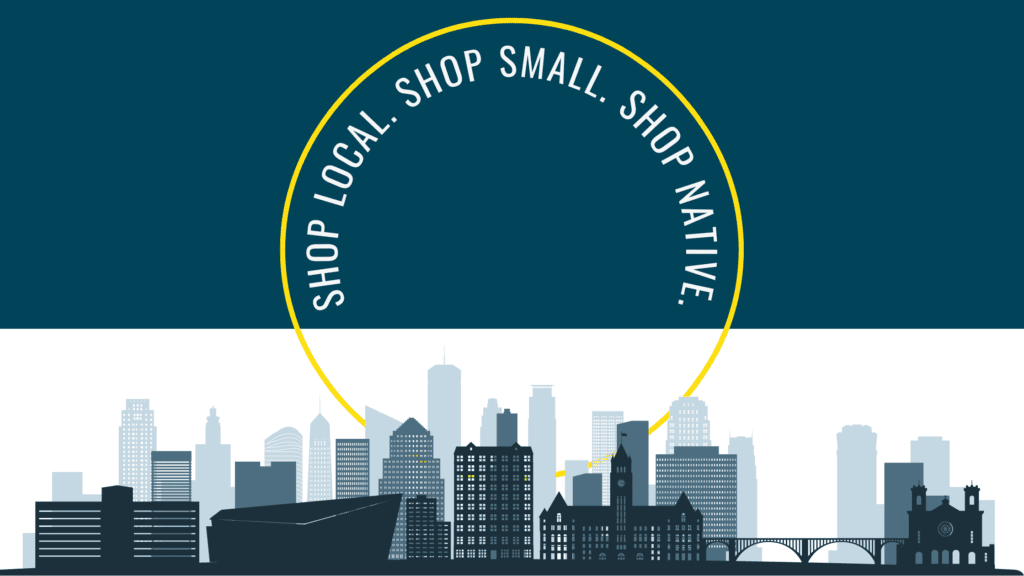3 Ways Native CDFIs Support Prosperity and Community

As a Native-owned business, one of the causes closest to our hearts is supporting often underrepresented minority groups in pursuing their entrepreneurial goals.
From herb shops sharing their knowledge of natural medicine to helping those with PTSD heal by connecting with horses, we’ve had the honor and privilege of cultivating an online presence for many Native Americans who are passionate about sharing their knowledge, expertise, and ingenuity with their communities.
Native Community Development Financial Institutions (CDFI) serve a critical role in making that happen by providing capital and resources to individuals and businesses affected by the historical divesting of wealth away from Native people.
We wanted to share three ways that Native CDFIs work to build a more optimistic and economically sustainable outcome for individuals, local communities, and the nation.
1. They Close the Native American Wealth Gap
To fully understand the financial reality of many Natives, it’s best to start with a few key statistics.
- As of 2021, the median income for Native Americans is $51,282 compared to the nation’s estimated median income of $69,717. (US Census Bureau American Community Survey)
- 24.2% of Native Americans live in poverty, compared to the overall poverty rate of 11.6% across all races. (US Census Bureau)
- The two most common tribal land economic initiatives are gaming and energy, but they offer little impact on job opportunities while drastically increasing tribal debt. Research shows that casinos create, on average, 25 new jobs, while energy projects create only 12. (Northwestern University Institute for Policy Research)
- Despite high homeownership rates (55.1%) amongst American Indians and Alaska Natives, this still falls well below the US average of 65.5%.
- While the median home value in the United States sits at $357,589, the same cannot be said for Native American home value, with a median of $135,200. (Center for American Progress)
Clearly, there is economic disparity between Native American communities and national averages, making it more difficult to build a financial portfolio that attracts fair lending rates to make small business ownership possible
Native CDFIs address this issue by awarding financial and technical assistance to Native Americans who have the drive to build their own businesses but lack access to safe lending institutions or the information on how to get started.
2. They Contribute to the Major Economic Role of the American Small Business
Small businesses are the lifeblood of America, creating a patchwork quilt of enterprises that account for 44% of all American economic activity and have created 62% of all new jobs created between 1995 and 2020.
Even in the aftermath of the COVID pandemic, small businesses created new job opportunities for their friends and neighbors at record-breaking rates. The U.S. Census Bureau reported 1.4 million new business formation applications in September of 2021, compared to 9.87 thousand in 2019.
By providing entrepreneurial Natives capital to fund their business ventures, CDFIs are making it easier for 6.79 million people to contribute to the economic powerhouse that is the American startup.
3. They Provide Financial Education, Training, and Debt Counseling to Ensure Long-Term Success
It is a sad reality that many individuals and small business owners don’t have the financial literacy to make prudent, market-informed decisions about their wealth management.
In fact, SCORE’s 2019 “The Megaphone of Main Street” report found that 84% of startups fail due to poor financial management and that 42% of entrepreneurs open their doors with less than $5,000 in their cash reserves.
Native CDFIs work with their awardees to ensure they have proper financial footing before they launch, along with the technical tools they need to properly market, power, and manage their business.
Rather than offering it as an optional service, funding is often contingent on participation, ensuring that innovative Native Americans have the capital to start their business and the information to invest that money wisely for continued prosperity.
Final Thoughts: Supporting Native CDFIs Ensures Ongoing Prosperity for All
Successful small businesses are a boon to the American economic landscape, adding industry-level diversity and customer service that simply isn’t possible for larger corporations.
By supporting the efforts of Native CDFI programs, we can enrich our hometowns with thriving, permanent institutions that ensure the entire community has access to job opportunities and businesses personalized to local needs.
These institutions are particularly important in states like Minnesota, which is home to 11 federally recognized Native tribes and nearly 80,000 Native Americans.
We are delighted to support their efforts through programs like Revive the Tribe, which donates up to 10% of each contract to support a tribe in need as a means of honoring our shared history and nurturing the traditions of indigenous people.